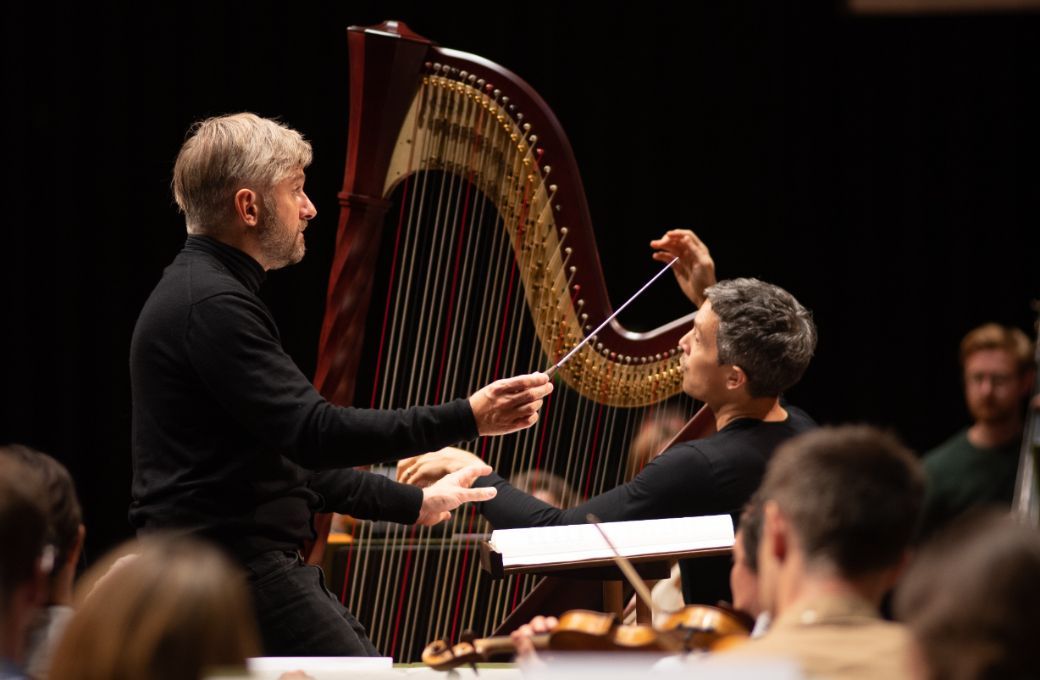Reinhold Glière has had a good year at the Lighthouse. Who would have thought the name of this Kyiv-born composer, once described by Richard Taruskin as a “doddering relic”, would have become so familiar and his music so readily valued? Just this year alone, the Bournemouth Symphony Orchestra has programmed his Horn Concerto, The Sirens and given the UK premiere of his Violin Concerto. Kirill Karabits has now added the composer’s Harp Concerto in E flat major, a work first performed in Moscow in 1938, and here given an impressive outing by the French soloist Emmanuel Ceysson, currently Principal Harp of the Los Angeles Philharmonic Orchestra.

It was an eventful performance since the soloist – with a smile you could have seen across Dorset – had to change a string between two of the movements. Without any fuss or awkwardness, Ceysson sprinted off stage to collect his bag of tricks to ensure his harp was roadworthy again. And the audience loved him all the more, and not just for his flawless technique and musicianship. Playing this concerto from memory brought real dividends. That Ceysson loved the work was more than evident, bringing fervent expression to the grandiose opening theme – shades of Hollywood film music never far away along with echoes of Glière’s Russian forebears and sentiment arriving with a lovely clarinet theme.
A substantial cadenza brought fresh delights, with reminiscences of the main themes all beautifully articulated. Ceysson was spotlit again in the theme and variation second movement, the BSO players never intruding but sensitive to a fault. If the Andante felt overly long, the finale was a stirring corrective, its giocoso marking underlined by the lively tempo and Ceysson enjoying Glière’s folklike material and exuberant flourishes, its winning formula bringing tumultuous appreciation. He returned to the stage for an arrangement of François Couperin's Les Barricades mystérieuses.
The evening had begun with Mozart’s Symphony no. 29 in A major, a work completed in April 1774 a little more than two months after his 18th birthday. Regarded as a turning point in his development, it is a joyous work remarkable for its self-assurance and blend of elegance and vigour. And both those last qualities were in abundance in this alert account, the players’ responding to Karabits' economical but playful gestures so that dynamic contrast and rhythmic impetus were always to the fore. The Andante flowed with an easy charm and the Minuet brought nimble articulation. It was the uplifting finale where the players’ excelled, strings basking in their Mannheim rockets, the whole crisply delivered with Mozart’s joie de vivre well caught.
And what a good choice to end with Borodin’s Symphony no. 2 in B minor, a work infrequently played these days. This performance, foregrounding drama and rollicking excitement gave every reason why the work should be heard more often. With Karabits’ forthright tempo, the ardent rhetoric of the opening Allegro never grew tiresome, and the Prestissimo movement lived up to its tempo direction (with horns totally secure in their fast repeated notes), and the Trio was winsomely characterised. Horn and clarinet soloists brought nobility to the lovely Andante where its lyricism was affectionately outlined. The whirling finale had an unbuttoned vitality of a Russian peasant dance, trombones now given full rein to blow the doors off the Lighthouse. Yet for sheer flair and incisiveness this was a thrilling end to a memorable evening.


